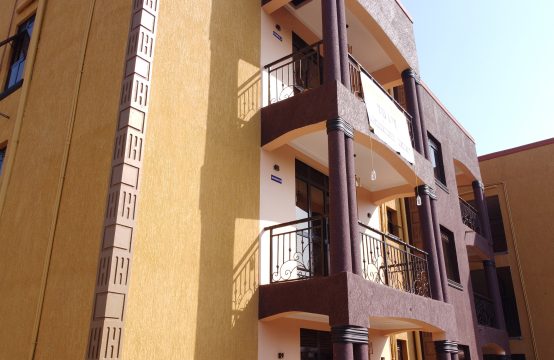FAQ
Archives: <span>FAQ</span>
- I’ve just received an eviction notice. Now what?
-
First and foremost, don’t panic. Receiving an eviction notice certainly isn’t a good thing, but it’s not the end of the world either. The landlord isn’t going to kick you out yet. You still have a short period to work this out. Usually the eviction notice will list the reason. If you haven’t been paying rent, you can try to pay your debts and see if the landlord will take you back. If your landlord has another complaint, correct it and then see where you stand. Sometimes landlords will simply ask you to move out unconditionally, meaning that there is no hope of kissing and making up. However, only a court can issue an eviction order in most areas.
- I need to move out early and break the terms of my lease. How does this work?
-
Hey, we know that not everything goes as planned. Maybe you need to move back home. Maybe your job has relocated you. Regardless of the reason, breaking the terms of a lease is never an ideal situation. Often a lease will include an early-release clause, which requests one or two months’ rent from the tenant after they vacate. If there are no terms, you’ll need to negotiate with your landlord. Always be straightforward with your landlord about your situation, respectful of their needs, and apologetic. Sometimes a little kindness really does go a long way.
- What happens when I don’t pay rent on time?
-
Always be sure to communicate with your landlord. Telling them that your rent is coming late might be a bit embarrassing, but it’s much better than sending a check that will bounce or just not paying the rent at all. Keep in mind that if you don’t pay rent on time continuously, the landlord has the right to issue an eviction notice.
- How do I deal with noisy neighbors?
-
You pay rent, so you have the right to enjoy peace and quiet in your home. Now you just need to know who to go to. If you live in an apartment complex, it is most certainly your landlord’s problem. If you live in a house, report them to the local police station. Before you go to any higher authorities, sometimes it’s just easier to knock on your neighbor’s door and politely ask them to be quiet.
- Am I allowed to ask neighbors about the history of the landlord and the building before I sign the lease?
-
No one can dictate who you can and cannot talk to in the building. Feel free to inquire about the history of the landlord and building. But keep in mind that, depending on your approach, this might not look great for you if the word gets back to your potential landlord.
- When is a landlord allowed to enter my home?
-
As long as you are paying, landlords must generally stay out of a property as long as tenants are paying rent. The only exceptions are in the case of an emergency, a repair, or a house showing for potential tenants in the future. Most lease agreements require a landlord to give 24-hour notice before entering the unit, but that, too, can vary by landlord. Some landlords have no set minimum for advance notice.
- Are landlords required to make repairs?
-
Landlords are required to make routine repairs in a timely fashion, no matter how small. Major repairs that compromise day-to-day living for tenants should be a top priority. If your landlord does not respond to your first request, then send a second request with a repair deadline. After all, you are paying to live there. You are entitled to a clean, functioning household. If major repairs go ignored for more than five days, send your landlord a request letter to work on the repairs yourself but stating you shall need it deducted from your monthly rent.
- What kind of exterior maintenance will I be responsible for?
-
Your level of responsibility for the exterior of the house depends on what kind of rental you have and the terms dictated in the lease. If you live in a large apartment complex, the courtyard will often be cared for — whether it be lawn mowing or snow shoveling — by the building’s maintenance team. If you live in a house, you are often responsible for the yard maintenance. Be sure to read your lease carefully to avoid any confusion.
- I want to sublet my place. Is this allowed?
-
I want to sublet my place. Is this allowed?Subletting entirely depends on what is stated in your lease and your local tenant laws. Some landlords welcome sublets and others would rather not deal with the complications, but in some areas, regardless of what your lease states, your landlord cannot forbid you from subletting. If you have any questions, be sure to ask your landlord. If you find someone to sublet your room/apartment, be sure to inform your landlord of the tenant change. Keeping open communication is essential on this issue.
- Someone has been staying at my place for a long period of time. How does this work?
-
If you have roommates, you’ll want to consult them before bringing visitors — especially longer-term visitors — into your home. Secondly, check your lease terms to see if your landlord has already outlined a guest policy for how long people not on the lease are allowed to stay on the premises. Many leases have special terms that add extra rent costs when more residents occupy the apartment. Sometimes the leases forbid new tenants altogether, as many landlords don’t want to be responsible for people not signed on the list.
- I want to make some changes to my apartment decor. How far can I go?
-
Making simple aesthetic changes, like swapping furniture, is not a problem (unless you rented a furnished unit). But if you want to make changes to the apartment itself — like painting or mounting some shelves on the wall — you will need to check the terms of your lease. Many landlords have a clause in the lease requiring written permission, so even if you receive verbal permission from your landlord, be sure to cover your butt and get a written document specifically telling you what you can and cannot do. Foregoing landlord permission can leave you with a financial mess at the end of the lease term if you aren’t able to reverse all of the changes. It’s much easier to be straightforward with your landlord and simply ask what kind of changes you’re allowed to make
- What are utilities and how are they paid for?
-
Utilities are the basics you need any housing unit: electricity, heat, water, trash pickup. Sometimes these bills are included in your rent payment and are handled by your landlord, but other times the tenant directly receives the bill. Be sure to ask your landlord about utilities before signing the lease so you know what you’ll be expected to pay for.
- How do I get my security deposit back?
-
If you keep the house in good condition and don’t inflict any damages on the property, then you will get your security deposit back at the end of your lease. To ensure that there are no misunderstandings between you and the landlord, be sure to take inventory of any wear-and-tear you see when you move in, preferably via photo. This way no pre-existing damages can be mistakenly blamed on you and you can get your security deposit returned fair and square. Generally, landlords are required to return the security deposit 30 days after the lease ends.
- What is my security deposit for?
-
The security deposit is a set amount of money that the landlord takes from you as collateral for the structural integrity and cleanliness of the house. In other words, this money is set aside by the landlord to inspire tenants to take good care of their rental property, and if you don’t, it gives them the opportunity to recoup those losses.
- Can a landlord raise my rent during my stay?
-
Landlords are allowed to raise the rent once the lease has expired. If you decide to stay in the same apartment next year, you should read your new lease carefully and make sure the rates haven’t gone up. If they have, see if you can negotiate with your landlord. If you are renting a month-to-month apartment, then rent increases are more likely to occur. In this case, landlords can raise the rent every month if they wish. But it’s important to have your landlord give you a 30 day notice before the rent is officially raised. This will give you time to find a new place if you cannot afford the new rent price.
- What is Earnest Money? How Much Should I Set Aside?
-
Earnest money is money put down to demonstrate your seriousness about buying a home. It must be substantial enough to demonstrate good faith and is usually between 1-5% of the purchase price (though the amount can vary with local customs and conditions). If your offer is accepted, the earnest money becomes part of your down payment or closing costs. If the offer is rejected, your money is returned to you. If you back out of a deal, you may forfeit the entire amount.
- How Do I Determine the Initial Offer?
-
Listen to your real estate agent’s advice, but follow your own instincts on deciding a fair price. Calculating your offer should involve several factors: what homes sell for in the area, the home’s condition, how long it’s been on the market, financing terms, and the seller’s situation. By the time you’re ready to make an offer, you should have a good idea of what the home is worth and what you can afford. And, be prepared for give-and-take negotiation, which is very common when buying a home. The buyer and seller may often go back and forth until they can agree on a price.
- How Do I Make an Offer?
-
Your real estate agent will assist you in making an offer, which will include the following information:
- Complete legal description of the property
- Amount of earnest money
- Down payment and financing details
- Proposed move-in date
- Price you are offering
- Proposed closing date
- Length of time the offer is valid
- Details of the deal
Remember that a sale commitment depends on negotiating a satisfactory contract with the seller, not just making an offer.
- How do I pay rent?
-
Rent rates are set in the lease, as well as the due date and how the rent will be processed by the landlord. As soon as you sign the lease, you’ve legally agreed to the terms, so be sure you fully understand the document before you sign. The way you pay your rent varies depending on the landlord’s preferences. Sometimes it’s as simple as sending a check in the mail. But some landlords support online payments or can set up automatic withdrawals so you don’t have to remember the due date. Be sure to reference your lease or ask your landlord how they prefer to receive rent before it comes due.
- What Does a Home Inspector Do, and How Does an Inspection Figure in the Purchase of a Home?
-
An inspector checks the safety of your potential new home. Home Inspectors focus especially on the structure, construction, and mechanical systems of the house and will make you aware of only repairs that are needed.
The Inspector does not evaluate whether or not you’re getting good value for your money. Generally, an inspector checks (and gives prices for repairs on): the electrical system, plumbing and waste disposal, the water heater, insulation and Ventilation, the HVAC system, water source and quality, the potential presence of pests, the foundation, doors, windows, ceilings, walls, floors, and roof. Be sure to hire a home inspector that is qualified and experienced.It’s a good idea to have an inspection before you sign a written offer since, once the deal is closed, you’ve bought the house “as is.” Or, you may want to include an inspection clause in the offer when negotiating for a home. An inspection clause gives you an “out” on buying the house if serious problems are found or gives you the ability to renegotiate the purchase price if repairs are needed. An inspection clause can also specify that the seller must fix the problem(s) before you purchase the house.
- How Many Homes Should I Consider Before Choosing One?
-
There isn’t a set number of houses you should see before you decide. Visit as many as it takes to find the one you want. On average, homebuyers see 15 houses before choosing one. Just be sure to communicate often with your real estate agent about everything you’re looking for. It will help avoid wasting your time.
- What Should I Look for When Walking Through a Home?
-
In addition to comparing the home to your minimum requirement and wish lists, you may want to consider the following:
- Is there enough room for both the present and the future?
- Are there enough bedrooms and bathrooms?
- Is the home structurally sound?
- Do the mechanical systems and appliances work?
- Is the yard big enough?
- Do you like the floor plan?
- Will your furniture fit in the space? Is there enough storage space?
- Imagine the home in good weather and bad – will you be happy with it year round?
Take your time and think carefully about each house you see. Ask your real estate agent to point out the pros and cons of each home from a professional standpoint.
- How Does the Lender Decide the Maximum Loal Amount that Can Afford?
-
The lender considers your debt-to-income ratio, which is a comparison of your gross (pre-tax) income to housing and non-housing expenses. Non-housing expenses include such long-term debts as car or student loan payments, alimony, or child support. The lender also considers cash available for down payment and closing costs, credit history, etc. when determining your maximum loan amount.
- How Does Purchasing a Home Compare with Renting?
-
The two don’t really compare at all. The one advantage of renting is being generally free of most maintenance responsibilities. But by renting, you lose the chance to build equity, take advantage of tax benefits, and protect yourself against rent increases. Also, you may not be free to decorate without permission and may be at the mercy of the landlord for housing.
Owning a home has many benefits. When you make a mortgage payment, you are building equity. And that’s an investment. Owning a home also qualifies you for tax breaks that assist you in dealing with your new financial responsibilities- like insurance, real estate taxes, and upkeep- which can be substantial. But given the freedom, stability, and security of owning your own home, they are worth it.
- How Do I Know if I’m Ready to Buy a Home?
-
You can find out by asking yourself some questions:
- Do I have a steady source of income (usually a job)? Have I been employed on a regular basis for the last 2-3 years? Is my current income reliable?
- Do I have a good record of paying my bills?
- Do I have money saved for a down payment?
- Do I have few outstanding debts, like car payments?
- Do I have the ability to pay a mortgage every month, plus additional costs?
If you can answer “yes” to these questions, you are probably ready to buy your own home.



